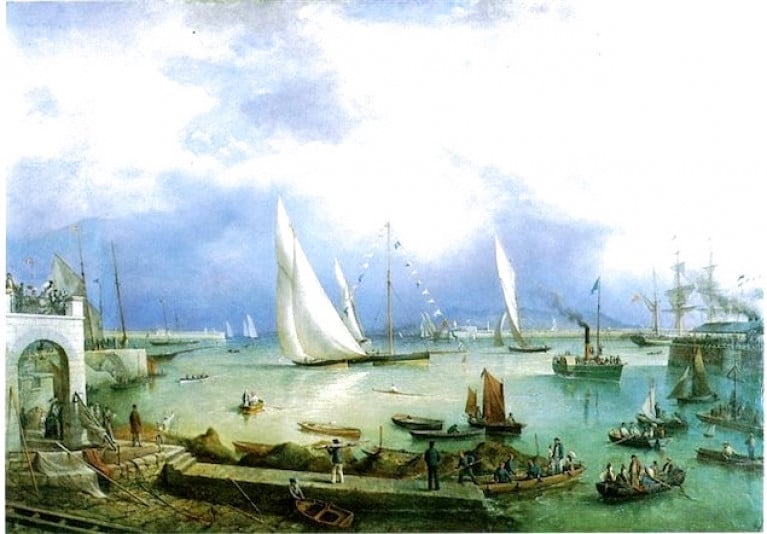Displaying items by tag: Richard Brydges Beechey
The Admiral Who Is Best Remembered In Ireland As An Artist
Nobody knows how maritime researcher and historian Cormac Lowth does it all. But while most of us are still absorbing his recently-launched encyclopaedic book about the once hugely active Ringsend sailing trawler fleet, he has been re-focusing on another of his numerous interests, the marine artist Richard Brydges Beechey, who lived and worked in Dublin for many years.
Beechey was a sailor by trade. In fact, he was a sailor in the Royal Navy. Indeed, so good was he at the day job that he became an Admiral.
But he was also a dab hand with the sketch pad and the oil paints and the paint brushes. So much so, as it happens, that although Admirals were ten a penny in the Royal Navy in the 19th Century, one of the few who is remembered in Ireland is Richard Brydges Beechey. And that's because fine examples of his works are hanging on the walls of some of our better-known marine-oriented buildings.
So how did he do it all? Well, who better to explain than another hyper-active maritime polymath. Cormac Lowth will tell all about Beechey at Poolbeg Y&BC under the auspices of the Dubin Bay Old Gaffers
Association this coming Thursday evening (October 27th) at 8.0pm, and all are welcome.
Zoom In on Richard Brydges Beechey, the Extraordinary Sailor-Painter
Richard Brydges-Beechey was one of those multi-talented people that the 19th Century produced in droves. Maybe they’d the time to be multi-talented because they didn’t have to spend time watching TV or using mobile phones or commuting or whatever, but the Monkstown, Co Dublin resident was such a good sailor and marine surveyor that he rose to the rank of Admiral in the Royal Navy, and he was such a dab hand with the artist’s paintbrush that he was elected to the Royal Hibernian Academy.
Noted Dublin maritime lore specialist Cormac Lowth is a Beechey fan, and he hopes to convey his enthusiasm in a zoom talk with the Howth Peninsula Heritage Society tomorrow (Tuesday) evening, but you’ve to be signed up by this evening – it's time to get the skates on.






























































